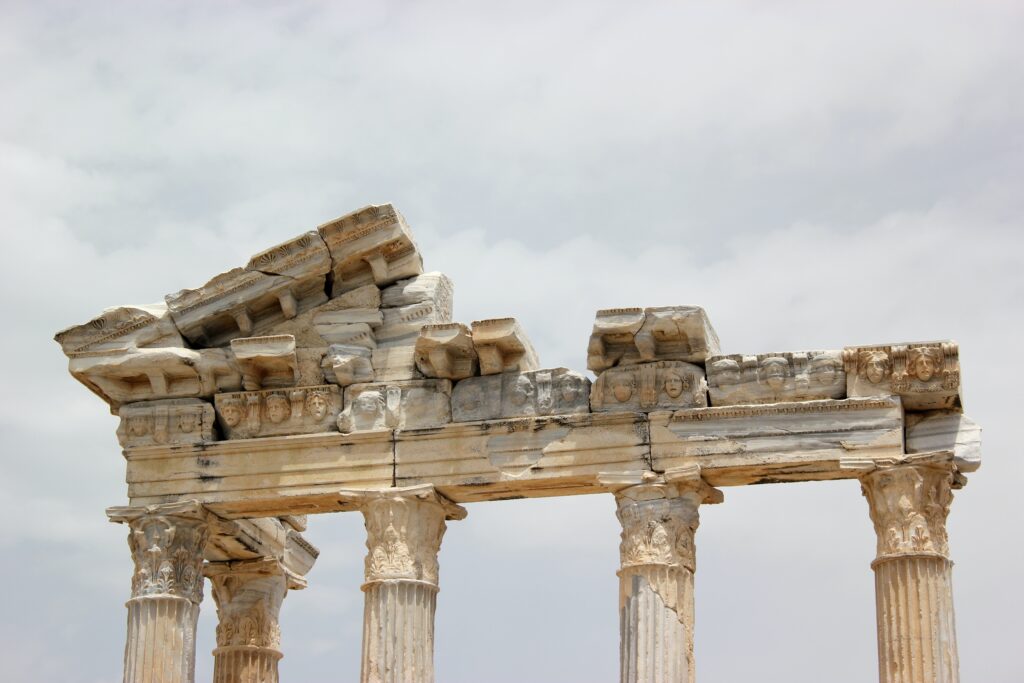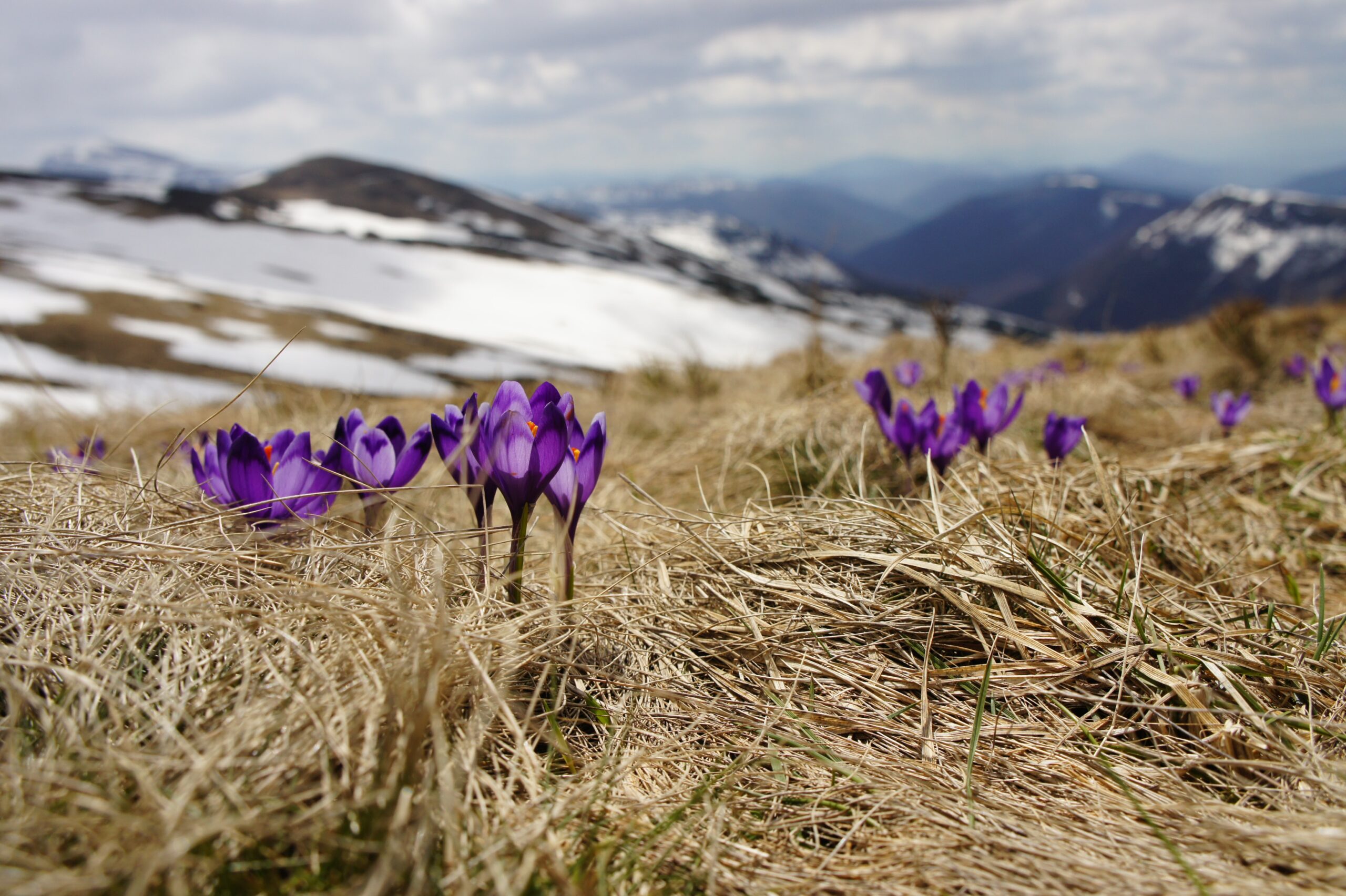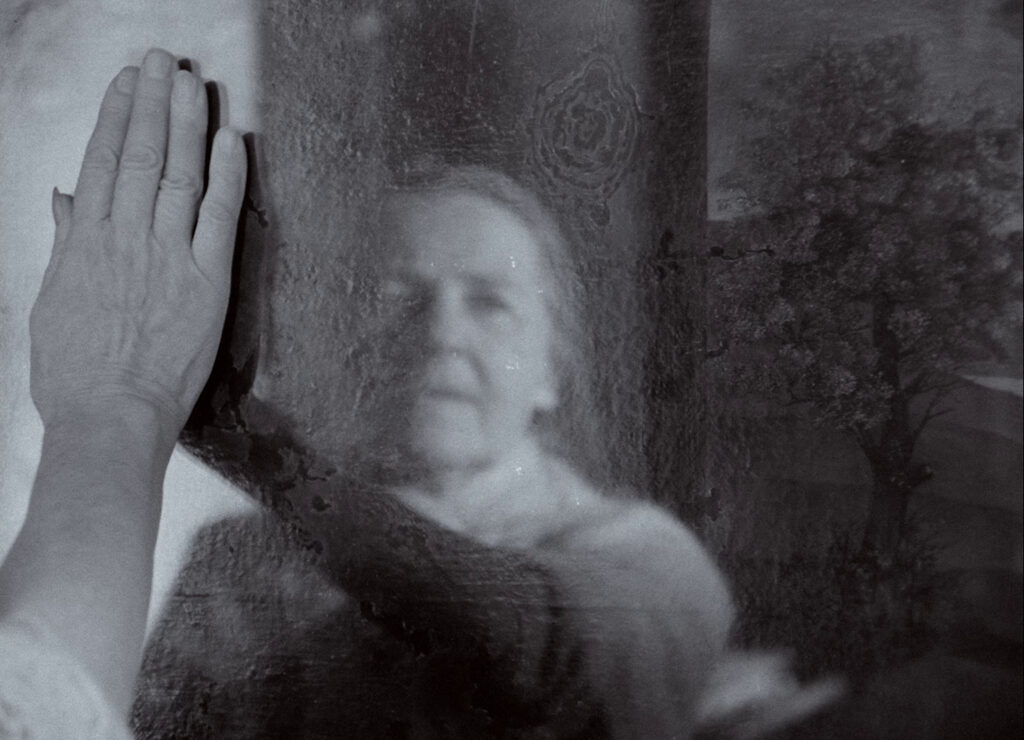“We’re in a bad time for everybody. There are very few models as to our way to be drawn upon in any community. There certainly are no states that one could look to and say, ‘A revolution has occurred here; they’re acting better toward people.’ And the religious are going the way of the state; obsession with survival at any price. There is a terrible casuistry that trades off human bodies and looks on an abstract, future good as an excuse for present evil.”
—Daniel Berrigan in The Raft Is Not the Shore by Thich Nhat Hanh and Daniel Berrigan (1975), p.22
Recently, the Open Learning & Teaching Collaborative at Plymouth State University (where I work) hosted two events that fit well together: Jesse Stommel led a conversation on care & equity in teaching and Kathleen Fitzpatrick gave a keynote presentation on generous thinking. Here, I want to think about these two events together, and also relate them back to my 2019 post about Fitzgerald’s book Generous Thinking as well as my post “5 Values”, written a month after that Generous Thinking post.
Note the date of those posts about generous thinking and values: summer 2019. Do you remember the summer of 2019? I don’t remember much about it specifically, but I know one obvious thing: we did not know how thoroughly our whole world was about to get upended. I remember the summer of 2020 far more vividly. That was the first summer of COVID, and it was also the summer of protests. George Floyd was murdered by police in Minneapolis on May 25, 2020. What followed got called “unrest“. And then? Lots of statements about equity and justice, far less action to create equity and justice. If I know anything about the future, I know there will be more unrest. We live in unrestful days.
Between the summer of 2019 and the fall of 2020, my university system offered a generous (truly!) retirement package and a similar voluntary separation package. Hundreds of faculty and staff across our schools took advantage of what was likely to be a once-in-a-lifetime deal. Many — most? — positions were not replaced, even though there was no apparent strategy to which positions went away. Additionally, impressively stubborn, even Machiavellian, moves by administrators rammed through the cancellation of entire majors. Chaos thrived, morale plummetted. Full-time faculty quit their jobs to go, for instance, teach middle school. Or they left academia altogether. My school in the fall of 2020 felt depopulated, a ghost town. A giant chunk of institutional memory evaporated in a matter of months. (My own program did okay, and we worked hard to keep things afloat at the CoLab. I felt a certain survivor’s guilt for this, an embarrassment at having a budget and a basically secure position, at least as secure as anything felt in those days. All around me, colleagues and friends were riddled with anxiety and anguish. I volunteered for too many committees, wanting my relative security to be useful somehow.)
In the conversation on equity and care, Jesse Stommel says he’s usually an optimist, but admits he has trouble being optimistic about higher education these days. I’ve never been an optimist about much of anything, so I have had less to adjust to. Still, pessimism doesn’t mean wishing for the world to conform to your expectation that everything will turn out badly. A few pleasant surprises would be nice.
The pandemic added new force to this statement from Generous Thinking: “What if the expertise the university cultivated were at its root connected to building forms of collectivity, solidarity, and community both on campus and off?” A public health emergency thins the wall between the campus and the community beyond it. It was hard, even impossible, for us to keep our COVID numbers down when they were rising through the community around the campus, and the community around the campus was understandably wary of thousands of college kids coming back from all over the country. Within schools themselves, teachers, students, staff, and administrators either found ways to work together with a sense of collective purpose or they fell apart in despair and mutual recrimination and bitterness. We saw impressive examples of solidarity as well as disheartening moments of greed, selfishness, and sociopathy.
Austerity measures made it all worse. Austerity had long been an administrative practice before the pandemic, but COVID ramped it up. Life got squeezed into a spreadsheet.
Now, there aren’t enough people to do the work, and chaos has caused us not to know who does what work that is still getting done. The effect is to turn people against each other, because every request anybody makes is more work for people who have too much work — which means all requests, regardless of what they are, are little bits of pain. Needles keep getting tossed onto the camel’s broken back.
In such an environment, we must be careful about the repercussions of our caring, the unintended consequences of our good intentions. Compassion is easy when its only effect is everybody’s happiness. But that is rarely possible when compassion means doing something and ideals meet the muck of everyday reality. Faculty may, for instance, feel righteous indignation for how a policy or procedure affects students, but the purpose of that policy or procedure may be to make staff people’s work better and sometimes even be the difference between work that is manageable and work that is not. It may be compassionate and caring to advocate for a change of policy to support students, but if you are told that the policy is in place to make it possible for the work of staff to get done, the generous response is not, “Screw the staff. They work for us. It’s their job.”
It is easy for us as faculty to feel righteous on behalf of students, to feel unassailable when we decry the cruelties of the institution, but we must be careful that our commitment to a particular idea of education does not lead us toward the immiseration of people carrying out the work we do not see.

The most difficult year of teaching I ever experienced was one spent at a private high school that served a community to which I was an outsider. The school had just spent millions of dollars to build a new building, but this expenditure was at the far end of what they could really afford, and the result was that they needed every single student’s tuition money if they were going to keep the lights on and the doors open. The school simply could not afford to lose students. The administration’s approach to this was to remove all discipline from the school. No students got grades below an A- (the principal flat-out told me this after I was perplexed by multiple students bursting into tears at a B), no students got any real interventions when they behaved badly, never mind suspensions or expulsions. Students could get a stern talking-to for disruptive or belligerent behavior, but that was it, and they recognized such admonishments were empty. The sacred rule was: keep the students happy. This was ruinous, and it was especially ruinous for me, a new faculty member who was not a part of the community, who then had to face classes of 20-30 adolescents every day who knew they could get away with anything short of physical assault. It was impossible to keep classes from devolving into chaos, and the effect was that nobody learned much of anything. That entire year was a waste of my and my students’ time. Part of that was my fault for not having better classroom management skills, but the odds were also terribly stacked against me. Nonetheless, the students were happy, and that was all that mattered to the school. Indeed, a lot of the students clearly enjoyed tormenting me.
When I bristle against some of the looser ideologies of progressive education, against some of the tendencies that want to make students the center of everything, it is that experience that I flash back to, that misery I fear.
This fear, though, is also a product of a lack of resources. Caring costs. We could let students do whatever they want, however they want, if we had vastly more staff to absorb the effect of their doing whatever they want, however they want. Or we could give up on being an institution and instead become more of a place where people encounter each other, something like Summerhill. Instead, we have at best a skeleton crew of staff plus federal, state, institutional, and accrediting-agency regulations to navigate, parents to appease, legislators to coddle, etc. Recognizing that sometimes people aren’t being malicious, sometimes they’re just trying to figure out how to make their jobs manageable within the limitations of an institution, is also generous thinking.
In an email I recently wrote to a few colleagues about a difficult situation for which there was simply no good solution, I talked about “the anger I feel at the university, at the university system, at the legislature, at the whole awful cultural moment we are in that has put such pain and despair into good people whose greatest crime is that they care about knowledge and learning and teaching (meanwhile, terrible people become billionaires). Again and again, I see great people leave public education, leave education altogether, be driven out of the work they sacrificed for and believed so deeply in. And I wonder how many times a heart can break.”
In a previous post here I wrote about Thich Nhat Hanh and kindness even in war. After writing that post, I read a book-length dialogue between Thich Nhat Hanh and the Jesuit priest and activist Daniel Berrigan, The Raft Is Not the Shore, first published in 1975. (It includes a foreword by bell hooks, who died only a month before Nhat Hanh.) I like it more than most books about mindfulness or interfaith dialogue because the conversations in this book happened at something of a nadir for activism and hope, a time of great bitterness and frustration, so there is an edge to the conversation that you don’t get in the many mindful/interfaith books that boil down to little more than recommendations to “pay attention to your breath” and “try to be nice”. Such recommendations feel especially shallow when the whole world is falling apart around you. (Which is no reason not to pay attention to your breath or not to try to be nice. We should! Even, and especially, amid chaos! In the end, all we have is our breath and our relations with other people.)
Consider this, for instance, from Nhat Hanh in a discussion of power, leadership, and why so many good people become harmful leaders:
When medical students and nurses are about to graduate, they think very much of helping the poor — those who have not enough money to go to fully equipped hospitals, facilities like that. But after graduation, after a few years in their careers, many of them begin to act like machines and pay no more attention to the poor and oppressed. The nurses become irritated at poor patients. The doctors become insensitive to the sufferings of the poor. It’s very sad. To love is a difficult thing when people try to cheat and trick you, to get the most out of you if you show compassion, goodwill; when they try to get the better of you because you show concern. So, at one point you cannot love them anymore, and you begin to treat them as you treat objects.
I think such things happen frequently. Our goodwill, our intentions, play one role, social conditions play another. And there are the political and economic systems. If we try to do things faithfully, in accord with our best instincts, we have to go against all of these forces.
If you are in power, they will try to bring you down. So, you make a compromise in order to be able to continue. You compromise to the point that you become like those whom you opposed before you came to power.
The Raft Is Not the Shore p. 38
How can we keep compassion going? How do we keep our hearts from petrifying with scar tissue?
If I had a clear answer to those questions, I would not struggle as much as I do.
When I feel that I have slipped beyond generosity, toward apathy or even cruelty, when I feel the jagged edges of hard-heartedness cutting through my flesh, my own past experiences raising my defenses instead of extending my compassion, I try to steer myself back toward three verities: primary values, community, and the present moment.
Primary values are what I talked about in the “5 Values” post. “Am I falling into useless or even harmful ways of thinking?” I might wonder. To judge, I return to those values. (A recent answer: Yes, I am falling into harmful ways of thinking. The next question became: Why? The answer: Impatience, primarily. Frustration. Annoyance. At what? Interestingly, when I reflected on the source of my feelings, I realized it was frustration at not being able to get other people to see some of those values that matter to me, people who see more value in judgment and punishment than I do, and this frustration made me worry that I am too soft, wishy-washy, weak. Why, I wondered, did I worry about that? I realized then that I worried I might be vulnerable again to the kind of exploitation and abuse I felt that year at the school where there was no discipline. In almost every way an irrational fear, but those are the most powerful. Our defensive responses are so often an attempt to protect ourselves from past suffering. The past is not accessible, the future may feel like a threat, and so the present becomes unbearable. By knowing what my primary values are, though, I have something to turn to, some alternate path away from the irrational fear.)
Community is one of my five values, but instead of thinking about it in that context, where it is in relationship to the other four values, here I think about it within the context of a time of chaos. Within this context, what I mean is that community allows us to be both strong and weak, energized and exhausted, expansive and defensive. Why? Because community means we don’t have to do it all on our own. A community that pays attention to itself as a community encourages some people to rest while others expend energy, and thus that community can absorb external chaos and strife for much longer than any individual. The community seeks placidity within itself, and that is its strength. Community homeostasis. Peace within to survive the chaos without. The environment around the community may be nuts, but the community itself lives by the rule of from each according to their ability to each according to their need. Today, I may have lots of ability and you may have lots of need; tomorrow, vice versa. A healthy community is not about any one individual doing everything, it is not about heroes, or at least not about The Hero as an identity. There may be lots of heroes in a community, but in a healthy community, who those heroes are changes day by day and week by week.
Finally, perhaps the simplest, most challenging, and yet most important way of thinking that I try to return to when generosity feels difficult and chaos overwhelming: valuing the present moment over any other.
The past is irretrievable, the future inaccessible. All we ever actually have is the present. This concept is simple to say, but so challenging and so fruitful that it has vexed, beguiled, and inspired philosophies for millennia.
Herakleitos (trans. Guy Davenport): “Everything flows; nothing remains. Everything moves; nothing is still. Everything passes away; nothing lasts.”
I have known people who live in their past, and though that has seldom been my own temptation, I once spent good chunks of life living for an imagined future. Everything I did was not for its own sake, but for the sake of preparing for a future I desired. “What’s wrong with that?” you ask. In small doses, perhaps nothing. Indeed, it’s probably better to prepare a bit than not at all. But if you do what I did through a lot of my early life, and see value only in what you imagine is to come, you will miss the value in the present. Nothing will ever be satisfying, nothing will ever be fulfilling, because everything will always be for tomorrow, not today. I have few regrets (regret sticks you in the past), but I do regret having lived this way. We live in an endless present; tomorrow is endlessly deferred.
Still, we must have concern for the future, even if we never live in it. A sense of deep time is just as vital as attention to the present moment. It’s that old idea of being good ancestors. Perhaps we can find meaningful ways of living if use extremities of time to balance our concern: let yourself think of the deep past far, far before your life was ever conceived, then think of the immediate now, then think of the far, far future for which you are an ancestor. The most meaningful values will come from that vision.
(Today, as I write this, is Earth Day, and the website LitHub offered short thoughts from a bunch of writers about how to get beyond the overwhelming terrors and sense of helplessness that climate crisis creates. Jeff VanderMeer, who has cultivated a whole ecosystem in his Tallahassee yard, said, “I focus past the frozenness by being attuned to the lifespans of the organisms in the yard and know that I can be of use to creatures, like opossums, for whom three years is a generation and who know nothing of the time beyond that.”)
In a post I wrote in May 2020 titled “The Value of Uselessness” (another value I cherish!), I quoted a favorite performance by Utah Phillips, a performance of the classic song “Hallelujah, I’m a Bum” with some fun stories spread through it. The story that I quoted there, and which is relevant here, is that of the neighbor, the “little retired banker fella”. (It’s best experienced in the recording, but I put the text in the post.) Of course, that story is facetious, and the little banker’s advice to work and save so that one day you might be free is a good one if you are concerned for future comfort. Still, I think the bum has more of a right idea than the banker. The pandemic has shown a lot of people that if you’re always living for tomorrow and never for today, eventually — perhaps sooner than you expect — you will run out of tomorrows.
Still, I say:
“Look Backwards on Your Future, Look Forward to Your Past” by Bonnie “Prince” Billy.
Look backwards on your future
and look forward to your past.
If you haven’t gone and made a mess of yourself
you just might end up with the last laugh.
Every little dot of presence and thought for another
will give your life class.
So look backwards on your future
and look forward to your past.
This particular assemblage of molecules and memories
some day soon may just
run out of gas…
So look backwards on your future
and look forward to your past.
We must return to now, because now is all we really ever have. We are locked out of the past and future, trapped in a constant flow of present moments. That is the basic fact of existence.
This basic fact can help us because it allows a clearer perspective on what matters and what is noise. I have been thinking about it recently in relationship to teaching. One of the ills of contemporary education in the United States is that it is too much about preparation and not enough about living in the now. If the whole purpose of school is to prepare people for life after school, then consider how much human energy is wasted in schooling. The common expression of life after school as “the real world” is a symptom of this way of thinking.
It is no coincidence that there have been a lot of conversations about the value and purpose of schooling in the wake of the pandemic. A giant emergency that upended all our systems showed us that setting school up as nothing but preparation for an unpredictable future is foolish. What about the many people who have, tragically, died before graduating? It’s a morbid thought, but a useful one. If school’s fundamental purpose is to prepare people for life after school, what then of the lives of people who did not get to have a life after school?
Here’s another question I don’t have a real answer to, but which perhaps is worth pondering: How might our pedagogy change if instead of prioritizing students’ preparedness for the future we prioritized their having a meaningful experience now, here, today? Is there a way to design a pedagogy that is fulfilling now, rather than tomorrow — since tomorrow, who knows, humanity could be smothered by an infestation of giant capybaras from outer space who kill us all with cuteness.
That suggests a new sort of generous thinking. A generosity in the here and now that is also, simultaneously, a generosity to the now. Before we can offer preparation, before we can even do the good and noble work of trying to be good ancestors, we need to honor this moment.
This moment.
This moment.
This moment.
Now.
Perhaps a generosity toward the present moment could help us stay compassionate even as the world around us does everything it can to make compassion difficult.
At Thich Nhat Hanh’s Plum Village, there is a beautiful chant, “Namo Avalokiteshvaraya”. It is just those two words repeated. Avalokiteshvaraya is the bodhisattva embodying compassion. As Nhat Hanh explained in a dharma talk:
When the monastics chant the name Avalokitesvara for the first time, they go back to themselves and try to touch the suffering inside of them.
When they sing and chant the name for the second time, they become aware of the suffering of the people around them.
And when they sing and chant it for the third time, they get in touch with the suffering in the world.
The chant doesn’t last for just three times, though. It lasts (beautifully!) for over twenty minutes (in the versions I’m familiar with). This is a good reminder that compassion is difficult. It requires real attention and real intention. Real practice. It doesn’t just happen, even for monks who have devoted their lives to it. The world of suffering resists compassion in every possible way. We will fail at compassion again and again and again. That is to be expected. Paradoxically, compassion for ourselves requires that we recognize and accept the many times our compassion will fall short. It does not, though, mean that we cannot be compassionate now, in this new moment.
The past is gone.
The future is not yet here.
There is only now.
And now we can have compassion. Now we can be generous.
And now.
And now.
Top image by Biegun Wschodni via Unsplash
Bottom image by micheile dot com via Unsplash



